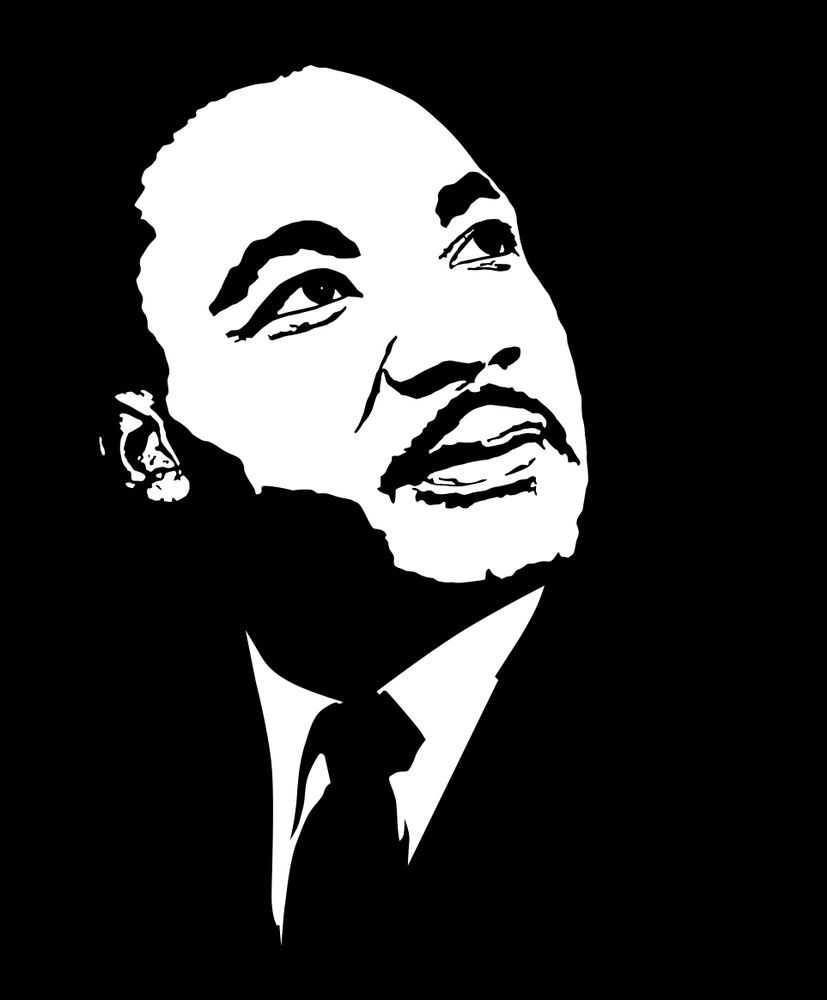MLK Day — Remembering a Man Gone Too Soon
- By Adrienne Moch
- Jan 21, 2019
- 5 min read

MLK Day — Remembering a Man Gone Too Soon
Martin Luther King Day is a holiday celebrated in the United States. While there are some formal celebrations, and acts of service are recommended (more about that below), many people simply enjoy a paid day off, giving little if any thought to the man behind the federal holiday. Folks like me, freelancers, may even work that day, since we gave up things like holiday pay when we went out on our own.
When King was assassinated in Memphis, Tenn., on April 4, 1968, I was about five months’ shy of my 9th birthday. I don’t have any memories of the tragic event; I’m sure I’d never even heard his name before that day. But since then, like many of you, I’ve come to learn what a truly great man he was — and how much we lost due to an intolerant man with a gun.
Who knows how our society would have benefited if he hadn’t been cut down at the age of 39. He would have surely been proud to see Barack Obama become president.
Here are a few quotes from him that certainly still ring true today:
Darkness cannot drive out darkness; only light can do that. Hate cannot drive out hate; only love can do that.
Injustice anywhere is a threat to justice everywhere.
Our lives begin to end the day we become silent about things that matter.
I just realized Martin Luther King Jr. was born January 15, so I’m writing this on what would have been his 90th birthday. As we get set for his special day — which always takes place on the third Monday of January — it’s a great opportunity to learn more about the man and some of the ways people celebrate him.
Meet the Man
Born in Atlanta, Ga., Dr. Martin Luther King Jr. graduated from Morehouse College and Crozer Theological Seminary, and earned a Ph.D. from Boston University. The son of the pastor of the Ebenezer Baptist Church in Atlanta, King was ordained in 1947, and in 1954, he became minister of a Baptist church in Montgomery, Ala. He led the black boycott of segregated city bus lines in 1955-56 and in 1956 gained a major victory and prestige as a civil rights leader when Montgomery buses began to operate on a desegregated basis.
King organized the Southern Christian Leadership Conference, which gave him a base to pursue further civil rights activities, first in the South and later nationwide. His philosophy of nonviolent resistance led to his arrest on numerous occasions in the 1950s and 1960s. His campaigns had mixed success, but the protest he led in Birmingham, Ala. in 1963 brought him worldwide attention. He spearheaded the August 1963 March on Washington, which brought together more than 200,000 people and was the site of his famous “I have a dream” speech. In 1964, he was awarded the Nobel Peace Prize.
King's leadership in the civil rights movement was challenged in the mid-1960s as others grew more militant. His interests, however, widened from civil rights to include criticism of the Vietnam War and a deeper concern over poverty. His plans for a Poor People's March to Washington were interrupted in 1968 for a trip to Memphis in support of striking sanitation workers. On Apr. 4, 1968, he was shot and killed as he stood on the balcony of the Lorraine Motel, which has been a civil rights museum since 1991.
A Holiday is Born — Finally
It took 15 years to create the federal Martin Luther King Jr. holiday. Democratic Congressman John Conyers from Michigan introduced legislation for a commemorative holiday four days after King was assassinated in 1968. After the bill became stalled, petitions endorsing the holiday containing six million names were submitted to Congress.
Conyers and Democratic Rep. Shirley Chisholm of New York resubmitted King holiday legislation each subsequent legislative session. Public pressure for the holiday mounted during the 1982 and 1983 civil rights marches in Washington.
Congress passed the holiday legislation in 1983, and it was signed into law by President Ronald Reagan. Moving the holiday from King's birthday, which was considered too close to Christmas and New Year's, to the third Monday in January helped overcome opposition to the law. The federal MLK holiday went into effect in 1986 — but a number of states resisted celebrating it.
Some opponents said King didn’t deserve his own holiday — contending the entire civil rights movement should be honored, rather than one individual, however instrumental. Arizona voters only approved the holiday in 1992 after a tourist boycott, and in 1999, New Hampshire changed the name of Civil Rights Day to Martin Luther King Jr. Day. Strangely, several southern states include celebrations for various Confederate generals on that day.
Ways to Celebrate
Since its inception, Martin Luther King Jr. Day has been recognized as a day of service, with thousands across the country taking time to give back to their communities as King did in his lifetime. It’s not sure how the government shutdown will affect the holiday this year, but you can research service projects, events, tributes and marches happening in your area.
Giving back is perhaps the best way to celebrate — making it a day on, not a day off. MLK Day of Service is intended to empower individuals, strengthen communities, bridge barriers, create solutions to social problems and move us closer to King’s vision of a “beloved community.”
Why serve on this day? According to the Corporation for National and Community Service, “Martin Luther King Jr. believed in a nation of freedom and justice for all, and encouraged all citizens to live up to the purpose and potential of America by applying the principles of nonviolence. MLK Day of Service is a way to honor his life and teachings by engaging in community action that continues to solve social problems. Service breaks down barriers by bringing people from different experiences together — volunteering can unite Americans of all ages and backgrounds while building stronger communities.”
To find a volunteer opportunity near you, visit nationalservice.gov.
Did You Know?
Here are a few things about Martin Luther King Jr. you may not know:
He was a vegetarian.
The name on his original birth certificate — filed five years after he was born — was Michael King. It wasn’t until he was 28 when it was revised; the name Michael was crossed out, and replaced with Martin Luther Jr.
He was a middle child, between an older sister and younger brother.
He suffered from depression throughout much of his life.
During his junior year, he won first prize in an oratorical contest sponsored by the Negro Elks Club in Dublin, Ga. Returning home to Atlanta by bus, he and his teacher were ordered by the driver to stand so white passengers could sit down. King initially refused, but complied after his teacher told him he’d be breaking the law if he didn’t submit. He said he was “the angriest I have ever been in my life” during this incident.
During his junior year in high school, Morehouse, a respected historically black college, announced it would accept any high school juniors who could pass its entrance exam. At that time, many students had abandoned further studies to enlist in World War II, so the college was eager to fill its classrooms. At the age of 15, he passed the exam and entered Morehouse.
Before his marriage to Coretta Scott, he was romantically involved with the white daughter of an immigrant German woman who worked as a cook in the Morehouse cafeteria. He planned to marry her, even after friends advised against it because it would potentially damage his chances of pastoring a church in the South, but he eventually broke off the relationship, saying he couldn’t endure his mother’s pain over the marriage.
I’m so pleased to know more about Martin Luther King Jr. and hope you are, too. Please share any thoughts you have on his holiday with us, including any acts of service you participate in on his day.


















































Comments